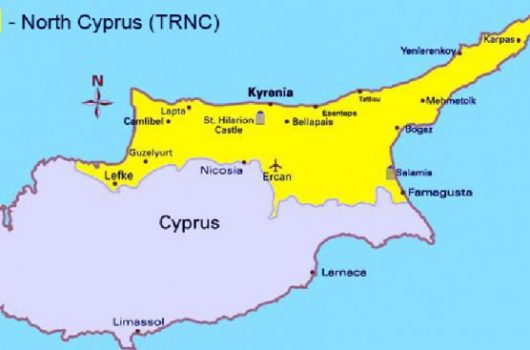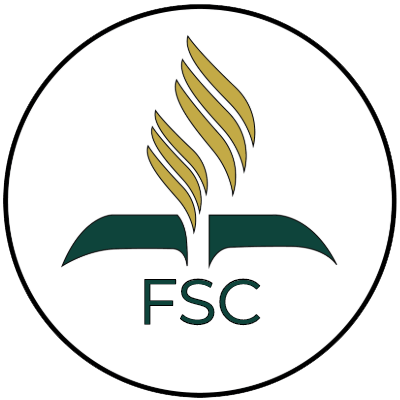Facts About North Cyprus
Geography and Location


Northern Cyprus has an area of 3,355 square kilometers (1,295 sq mi), which amounts to around a third of the island. 75 kilometers (47 mi) to the north of Northern Cyprus lies Turkey with Syria lying 97 kilometers (60.3 mi) to the east.
The coastline of Northern Cyprus features two bays: the Morphou Bay and the Famagusta Bay, and there are four capes: Cape Apostolos Andreas, Cape Kormakitis, Cape Zeytin and Cape Kasa, with Cape Apostolos Andreas being the endpoint of the Karpaz Peninsula. The narrow Kyrenia mountain range lies along the northern coastline, and the highest point in Northern Cyprus, Mount Selvili, lies in this mountain range with an altitude of 1,024 meters (3,360 ft). The Mesaoria plain, extending from the Güzelyurt district to the eastern coastline is another defining landscape. The Mesaoria plains consist of plain fields and small hills, and is crossed by several seasonal streams. The eastern part of the plain is used for dry agriculture, such as the cultivation of wheat and barley, and are therefore predominantly green in the winter and spring, while it turns yellow and brown in the summer.
56.7% of the land in Northern Cyprus is agriculturally viable.
History and Population
Northern Cyprus, officially the Turkish Republic of Northern Cyprus, is a de facto state that comprises the northeastern portion of the island of Cyprus. Recognised only by Turkey, Northern Cyprus is considered by the international community to be part of the Republic of Cyprus.
Northern Cyprus extends from the tip of the Karpass Peninsula in the northeast to Morphou Bay, Cape Kormakitis and its westernmost point, the Kokkina exclave in the west. Its southernmost point is the village of Louroujina. A buffer zone under the control of the United Nations stretches between Northern Cyprus and the rest of the island and divides Nicosia, the island’s largest city and capital of both sides.
A coup d’état in 1974, performed as part of an attempt to annex the island to Greece, prompted the Turkish invasion of Cyprus. This resulted in the eviction of much of the north’s Greek Cypriot population, the flight of Turkish Cypriots from the south, and the partitioning of the island, leading to a unilateral declaration of independence by the north in 1983. Due to its lack of recognition, Northern Cyprus is heavily dependent on Turkey for economic, political and military support.
Attempts to reach a solution to the Cyprus dispute have been unsuccessful. The Turkish Army maintains a large force in Northern Cyprus. While its presence is supported and approved by the TRNC government, the Republic of Cyprus, the European Union as a whole, and the international community regard it as an occupation force, and its presence has been denounced in several United Nations Security Council resolutions.
Northern Cyprus is a semi-presidential, democratic republic with a cultural heritage incorporating various influences and an economy that is dominated by the services sector. The official language is Turkish, with a distinct local dialect being spoken.
Society and Culture
The culture of Northern Cyprus is the pattern of human activity and symbolism associated with Northern Cyprus and Turkish Cypriots. It features significant elements influenced by or developed upon the culture of Turkey, but combines these elements with a unique Cypriot approach and local traditions (in common with Greek Cypriots), as well as several other influences, such as the British and contemporary western cultures.
Cost of Living
North Cyprus must be one of the least expensive places to live in the Mediterranean.
North Cyprus offers very affordable living conditions for students and this is among the top reasons why Cyprus is fast becoming a student hub for students from many different countries and cultures.
Education System
North Cyprus education is compulsory and is free from the Cyprus government from the ages of 5 -17 years. Many foreigners in Cyprus prefer to send their children to one of the many private schools in North Cyprus, which cater for all ages, from Nursery to Pre School taking you up to University.
Northern Cyprus education system has grown rapidly over the past few years and provides a very high standard and variety of education packages which has started to attract many western foreigners especially at University level.
There is a choice of State schools or private schools but all offer a very good education system. Whatever type of education in North Cyprus you choose for your children you will find a mixture of local Cypriot or English children in the classrooms.
Information Specific to International Students
Across Northern Cyprus, international enrollment has jumped from 3,500 students in 2008 to 90,000 now. The total number of students has increased rapidly creating a demand of North Cyprus universities internationally among all sorts of International students.
At E.M.U. alone, the number of international students has almost quadrupled within the last few years and the Alumni has increased up to 50,000 this year.

